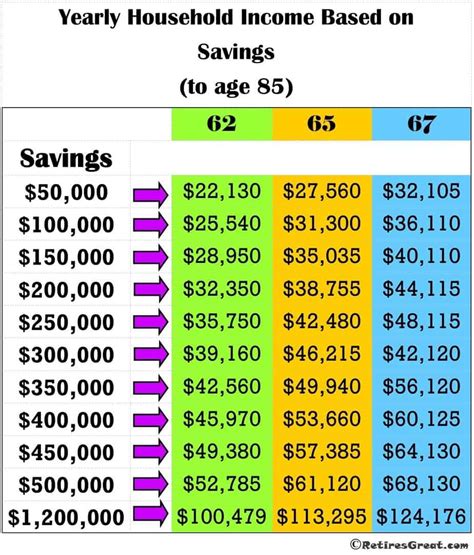How Much To Save For Retirement: A Comprehensive Guide
Retirement. The word conjures images of relaxation, travel, and enjoying life's simple pleasures. But achieving a comfortable retirement requires careful planning and, most importantly, saving. The question "How much to save for retirement?" is a crucial one, and the answer isn't a simple number. It depends on numerous factors unique to your individual circumstances. This comprehensive guide will help you navigate the complexities and determine a realistic savings goal.
Understanding Your Retirement Needs
Before diving into specific savings amounts, let's clarify what a comfortable retirement means to you. Consider these key factors:
- Desired Lifestyle: Do you envision a lavish retirement filled with international travel and fine dining, or a more modest lifestyle focused on spending time with family and pursuing hobbies? Your desired lifestyle directly impacts your retirement expenses.
- Healthcare Costs: Healthcare expenses tend to rise significantly in retirement. Factor in potential medical insurance premiums, prescription drugs, and long-term care costs. This is often a significantly underestimated expense.
- Inflation: The purchasing power of your savings will erode over time due to inflation. You need to save enough to account for this future price increase. A retirement calculator can help you adjust for inflation.
- Current Expenses: Analyze your current spending habits to project future retirement expenses. While some expenses may decrease (e.g., commuting), others may increase (e.g., leisure activities).
- Debt: Entering retirement with significant debt can severely impact your financial security. Aim to pay off high-interest debt before retirement.
Calculating Your Retirement Savings Goal
Several methods can help you determine your target retirement savings:
The 80% Rule:
A common rule of thumb is to aim to replace 80% of your pre-retirement income. This accounts for decreased expenses but also factors in potential inflation.
The Expenses-Based Method:
This method involves projecting your annual retirement expenses and multiplying that number by the number of years you expect to be in retirement. This requires careful budgeting and consideration of inflation.
Using Online Retirement Calculators:
Numerous online calculators are available to help estimate your retirement needs. These tools consider various factors, including your age, current savings, income, and desired retirement age. While these calculators are helpful, remember they provide estimates, not guarantees. Always do your own research.
How Much Should You Save Annually?
There's no magic number for annual retirement savings. However, a good starting point is to aim for at least 15% of your pre-tax income. This percentage combines employer matching contributions (if applicable) and your personal contributions.
Factors influencing annual savings:
- Age: Younger individuals have more time to accumulate wealth through compounding, allowing for lower annual savings compared to those closer to retirement.
- Income: Higher earners generally have more capacity to save larger amounts annually.
- Investment Returns: While you cannot predict market performance, higher average returns allow for lower annual contributions to reach your savings goal.
Strategies for Boosting Your Retirement Savings
- Maximize Employer Matching: If your employer offers a matching contribution to your retirement plan, contribute enough to receive the full match. This is essentially free money!
- Automate Savings: Set up automatic transfers from your checking account to your retirement accounts. This ensures consistent contributions without requiring constant effort.
- Increase Contributions Gradually: Don't try to drastically change your savings habits overnight. Increase your contributions incrementally over time to avoid financial strain.
- Invest Wisely: Consider diversifying your investments across different asset classes to manage risk and maximize returns.
Conclusion: Plan Early, Save Consistently
Saving for retirement is a marathon, not a sprint. The sooner you start saving, the more time your money has to grow through compounding. By carefully considering your individual circumstances, using appropriate tools, and adopting consistent savings habits, you can significantly improve your chances of achieving a comfortable and fulfilling retirement. Remember to regularly review and adjust your retirement plan as your circumstances change.
